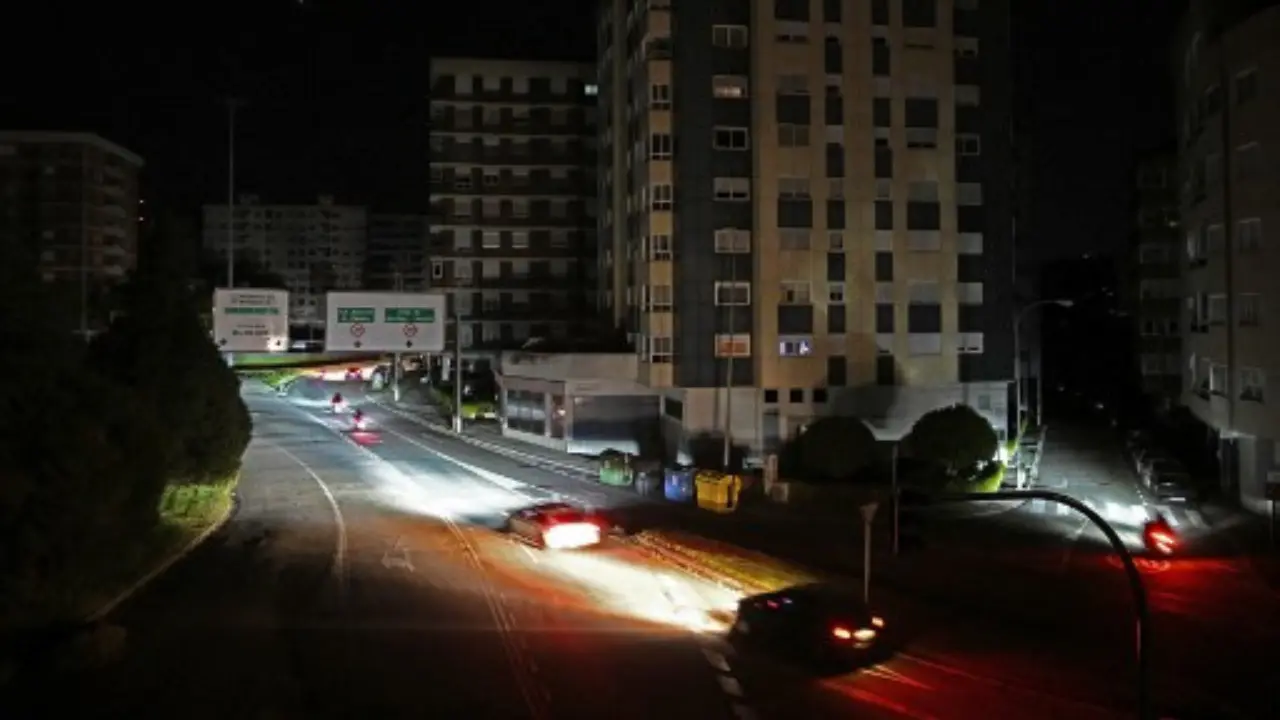Cyberattack or something else, what caused the huge power cut in Spain and Portugal?
Written By Srishti Sisodia
Published: Apr 29, 2025, 07:03 IST | Updated: Apr 29, 2025, 07:03 IST

Story highlights
World | Spain declared a national emergency, deploying 30,000 police across the nation to keep order as govt from the two countries convened emergency cabinet meetings
A massive power outage hit Spain, Portugal and France on April 28, 2025, affecting millions of people as major cities were plunged into near-total darkness. Mainland Spain, mainland Portugal and parts of southwest France experienced power outages.
The outage lasted for hours, with estimates suggesting it would take "between six and ten hours" to restore service in Spain and up to a week in Portugal. Now, gradually, the power is being restored.
The outage brought cities to a standstill, grounding planes, and halting public transport. The mobile networks were severely impacted and hospitals resorted to generators to maintain operations. Some hospitals were forced to suspend routine operations earlier in the day.
The situation was so chaotic that Spain's Interior Ministry declared a national emergency, deploying 30,000 police across the country to keep order as governments from the two countries convened emergency cabinet meetings.
Also read: Top Gun: Maverick writer’s cousin claims he wrote key scenes, was never credited, sues studio
People on social media speculated that a cyberattack could have been the reason behind the major outage, but the exact cause is still unknown. The Spanish cybersecurity agency, Incibe, is investigating the possibility of a cyberattack, although initial analysis shows no evidence of an attack.
Nonetheless, rumours circulated of possible sabotage, and Spanish Prime Minister Pedro Sanchez said he had spoken to NATO Secretary General Mark Rutte.
Sanchez said that the country had suffered a loss of 15GW of electricity generation in five seconds, equivalent to 60% of national demand. The technicians were working to figure out why that sudden drop occurred, he said.
A fire in southern France that damaged an extra-high-voltage power line has been identified as a possible cause.
Meanwhile, the cause was unclear, with Portugal suggesting the issue originated in Spain and Spain pointing the finger at a break-up in its connection to France.
Portuguese Prime Minister Luis Montenegro said there was "no indication" a cyberattack had caused the blackout, which began around 1033 GMT.
Scientists have also commented on power outages across Iberian Peninsula, weighing in on the possible cause. As quoted by the Science Media Centre, Dr Onyema Nduka, Senior Lecturer in Power Sustainability, Royal Holloway, University of London, said: "The reports about power outages in large parts of Spain and Portugal is still an evolving event and therefore a detailed investigation is required to determine what caused the power cuts."
"Electricity outage is highly undesirable as it can impact several aspects of lives in modern societies; it can be caused by different factors such as equipment failures or mal-operation, overloading of electricity assets (transformers, cables/wires, etc.), disasters (both natural events and those triggered by human activities) and so on.
“While electricity outages are rare in European countries, they are possible as the events in Portugal and Spain have shown.
"Power networks usually span a large geographical area – this is because large generation plants are usually located farther away from the cities and through the transmission and distribution networks, the electricity is supplied to the customers.
Also read: 'This is Canada, and we decide what happens here': Mark Carney's dig at 'sometimes hostile' America
"As a result, such networks are usually interconnected including across regions and countries. Hence, the occurrence of a power cut in one part of the power grid could lead to a cascading effect in other areas.
"Ideally, redundancies are built into the system such as having multiple supply points, backup generators sited at different locations, interconnected wires/cables, etc.
"The grids are interconnected, which is common, as it helps to manage the export and import of electricity, hence, improving the reliability of supply.
"The solution on resolving the situation is, as one would expect, for the electricity utility companies to make efforts to restore electricity to the affected customers ASAP.
As quoted by the Science Media Centre, Professor Solomon Brown, Professor of Process and Energy Systems at the University of Sheffield, said: "My understanding is that the power systems are connected through ‘interconnectors’ in the same way that Scotland and the rest of the GB network are connected, and also GB with other parts of Europe. This means that there is interdependency between the networks but also that they will have to be re-started separately.
"As the two networks have gone down they will have to be re-powered, which means that the grid operator will slowly bring on key generators matched with users (so that production and consumption of electricity match) in regions of the network that slowly expand until the whole system is back on and can then be reconnected to external networks. This process can take a number of hours and may have to be attempted more than once if things don’t go smoothly."